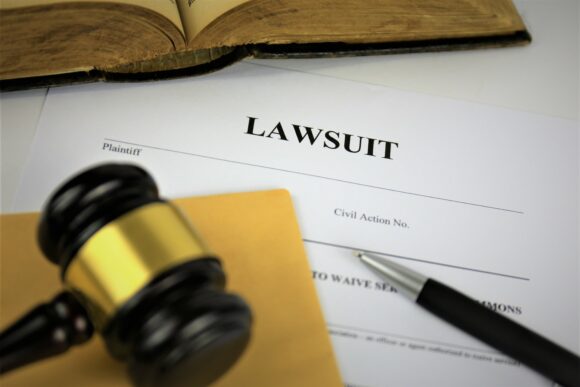
Three law students on Tuesday sued a U.S. civil rights agency, claiming that its probe into diversity policies at 20 large law firms is illegal and could expose the personal information of lawyers and job applicants.
The lawsuit filed in federal court in Washington, D.C., is the latest pushback against President Donald Trump’s efforts to rein in major law firms and eradicate workplace diversity, equity and inclusion programs.
The law students claim that the Equal Employment Opportunity Commission’s acting chair, Andrea Lucas, lacked the power to demand last month that 20 large law firms provide a trove of information on their diversity initiatives, which she suggested were discriminatory. The law firms included Kirkland & Ellis, Latham & Watkins and Perkins Coie.
The plaintiffs, who filed the lawsuit anonymously, said they had applied for jobs at several of the firms beginning this summer.
They said that if firms hand over the data to the EEOC, sensitive information will be disclosed including their demographic and contact information, compensation and participation in DEI programs.
“Plaintiffs now have significant concerns … that the government may use their data improperly to target them or their families for any activity or speech it wishes to stifle,” they said.
An EEOC spokeswoman declined to comment.
Nine firms have entered into agreements with Trump, collectively pledging nearly $1 billion in legal work on causes supported by his administration. Four of the firms that have settled also agreed to scrap diversity policies in exchange for the EEOC dropping its investigation into them.
Four other firms targeted by Trump have filed lawsuits, winning orders from judges blocking executive orders he has issued against them.
The commission enforces laws prohibiting workplace discrimination and can sue employers for violations and give workers permission to file their own lawsuits. Under federal law, the agency can launch an investigation only after receiving a written complaint from a worker.
A commissioner can also file a complaint, known as a charge, but is then prohibited from disclosing its existence.
The law students say that the EEOC’s announcement of the letters sent to law firms suggests that no formal complaints have been filed, and that as a result Lucas had no power to request the information.
Lucas, a Trump appointee, said in the letters to law firms that some firms had publicly touted their commitment to diversifying their workforces and at least two had adopted explicit numerical goals for recruiting lawyers based on their race, ethnicity, sexual orientation and gender identity.
Lucas said she was concerned that the firms’ policies may entail disparate treatment in working conditions or segregating and classifying workers based on race, sex and other protected characteristics, in violation of Title VII of the Civil Rights Act of 1964.
Trump has moved aggressively to curb DEI programs, which he has said are illegal and erode merit-based decision-making. The Republican president has issued executive orders to eliminate diversity programs at federal agencies and bar companies that contract with the government from maintaining them.
At the same time, Trump has targeted law firms that represented clients who have challenged his policies in court and that have employed lawyers or represented people involved in investigations against him.
Tuesday’s lawsuit seeks to block the EEOC from obtaining employee information from law firms without following the proper procedures, and to order the commission to destroy any data it has already collected as a result of the investigation.
Topics
Lawsuits
Interested in Lawsuits?
Get automatic alerts for this topic.
#Law #Students #Sue #Civil #Rights #Agency #Crackdown #LawFirm #DEI #Policies